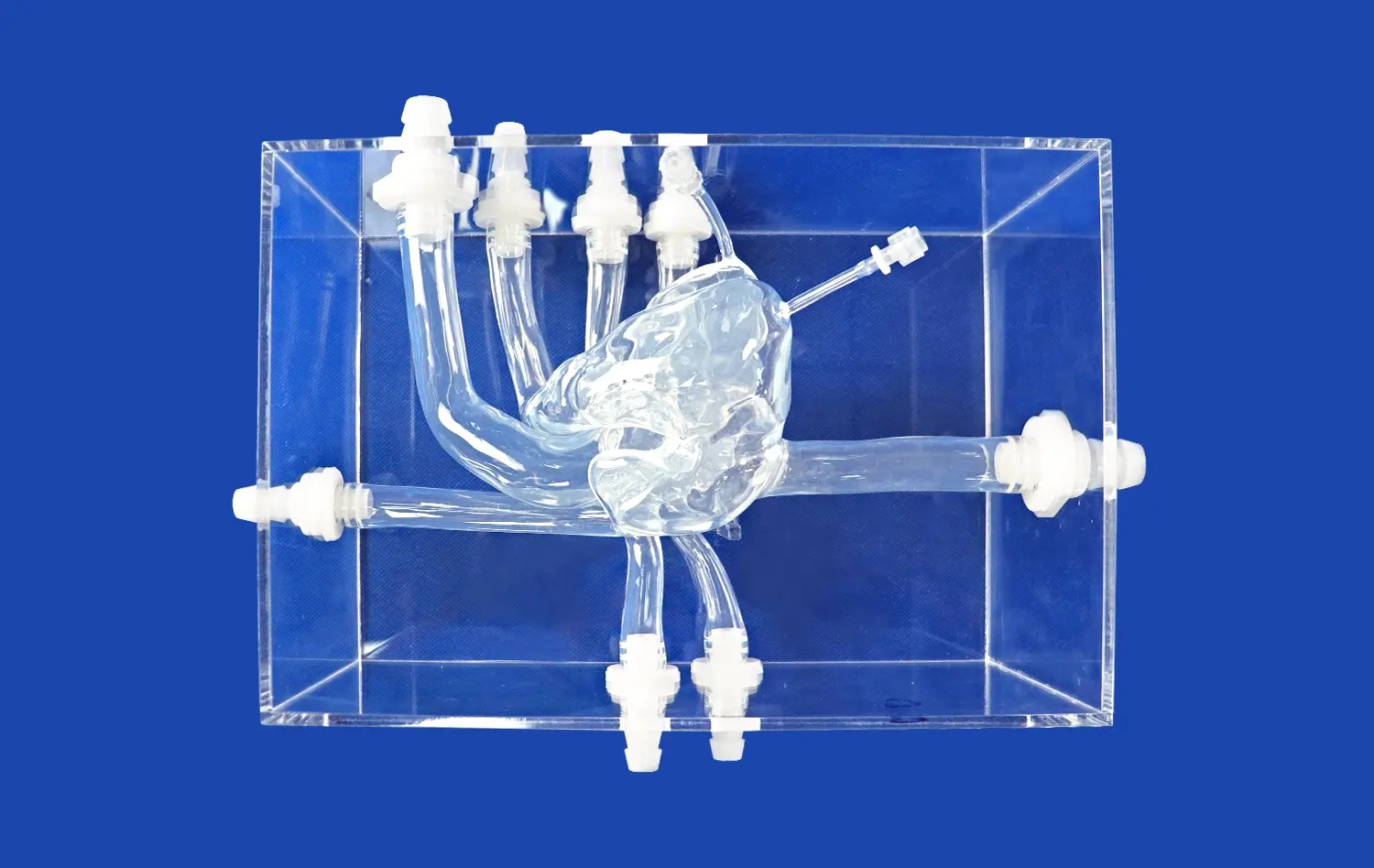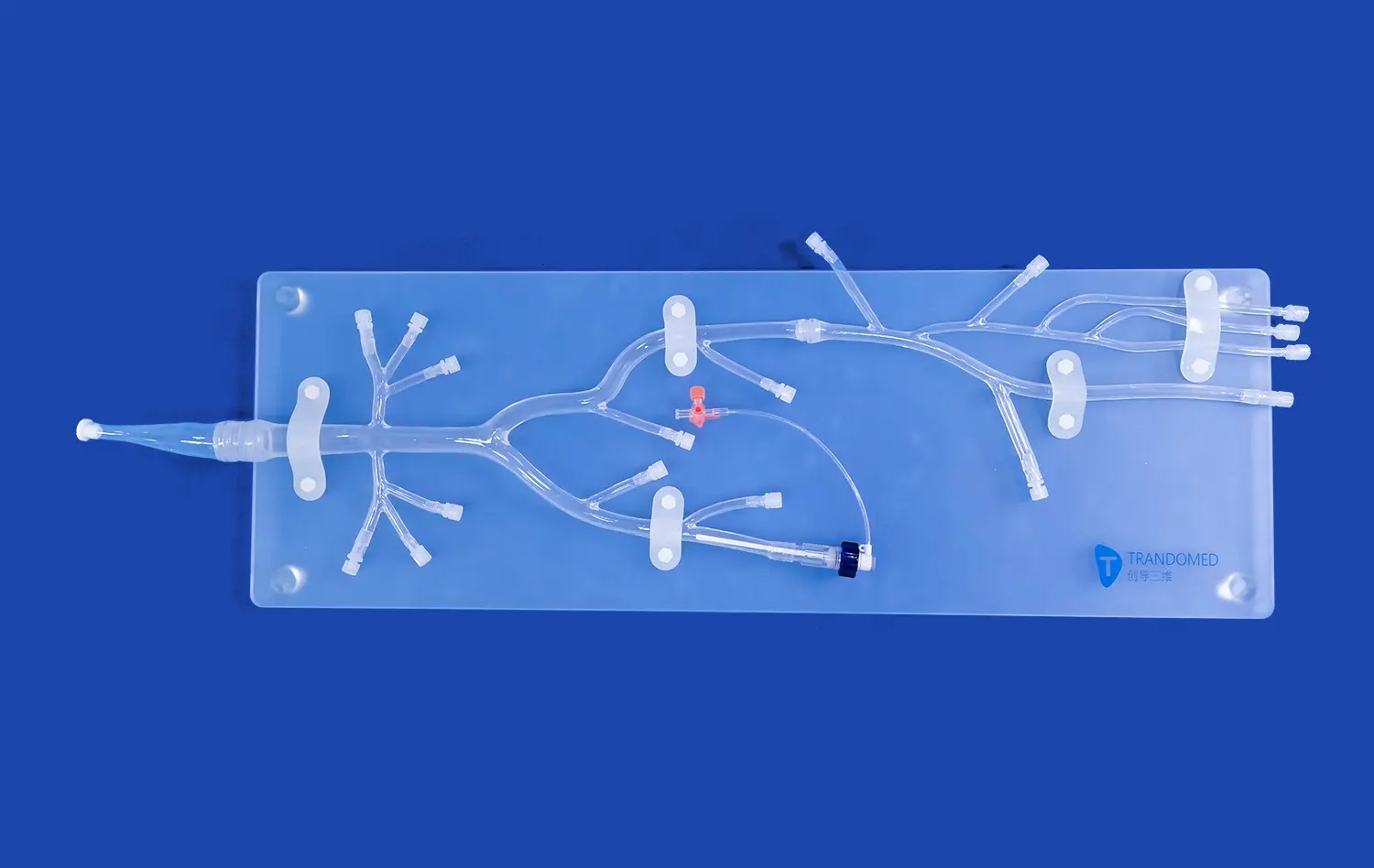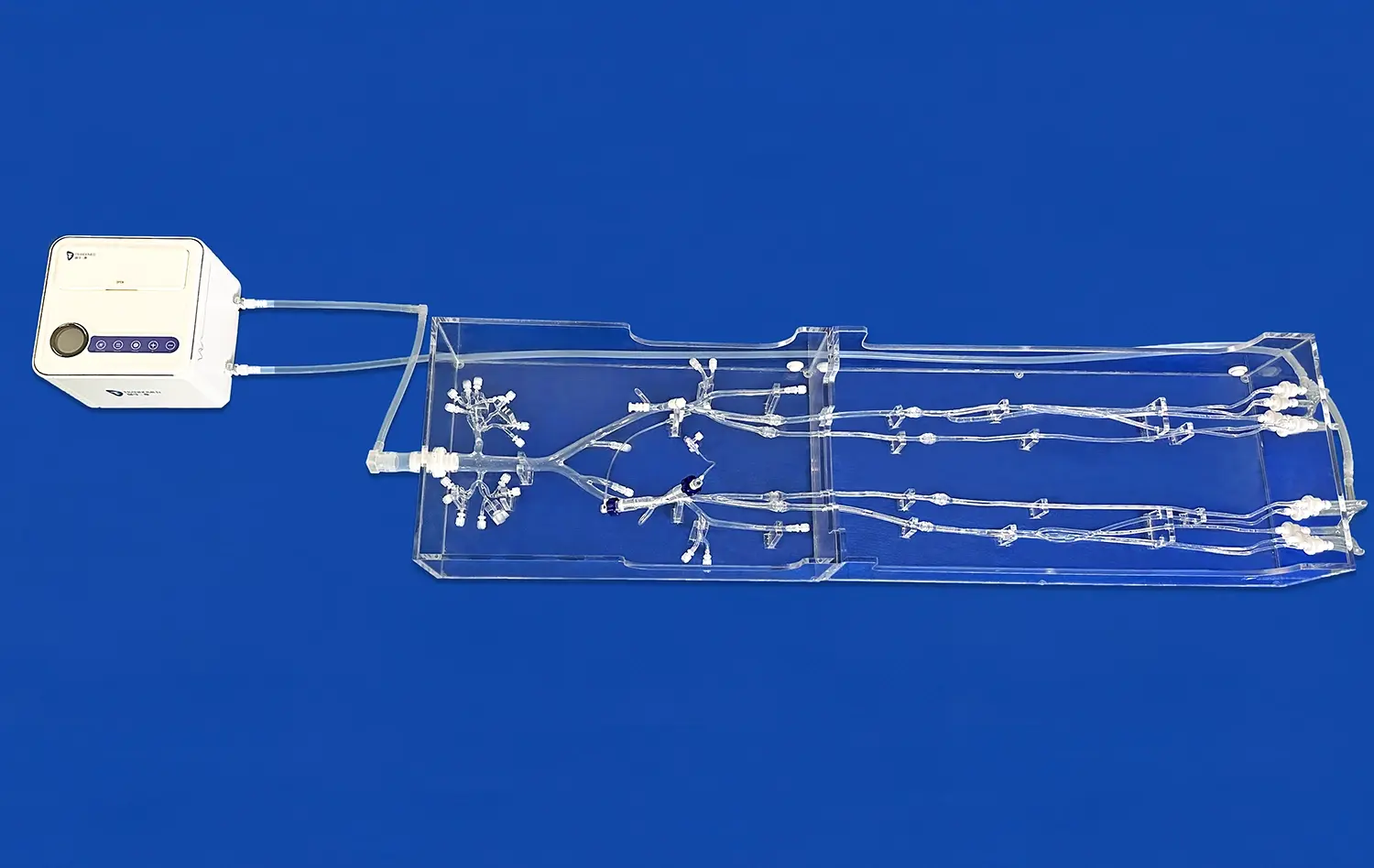The Role of Colonoscopy Simulators in Enhancing Early Detection of Colorectal Cancer
2024-12-24 10:07:58
Colonoscopy simulators play a crucial role in enhancing the early detection of colorectal cancer by providing realistic, hands-on training for medical professionals. These advanced tools offer a safe environment for practitioners to hone their skills, improving their ability to identify subtle abnormalities and potentially cancerous lesions. By replicating the challenges of real-world procedures, colonoscopy simulators enable healthcare providers to gain confidence and proficiency in performing colonoscopies, ultimately leading to more accurate diagnoses and improved patient outcomes. The integration of these simulators into medical training programs has revolutionized the way clinicians prepare for colorectal cancer screening, fostering a new era of precision and effectiveness in early detection efforts.
How Do Colonoscopy Simulators Improve the Skillset for Detecting Colorectal Cancer?
Enhanced Visual Recognition Skills
Colonoscopy simulators significantly improve the visual recognition skills of medical professionals by exposing them to a wide variety of colorectal abnormalities. These sophisticated training tools utilize high-resolution imagery and advanced graphics to recreate the intricate details of the colon's interior, including subtle mucosal changes, polyps, and early-stage cancerous lesions. Through repeated exposure and practice, clinicians develop a keen eye for identifying even the most minute irregularities, which is crucial for early cancer detection.
The simulators often incorporate a diverse range of case scenarios, presenting trainees with varying degrees of difficulty in lesion identification. This comprehensive approach ensures that practitioners are well-prepared to recognize both common and rare presentations of colorectal abnormalities. By honing their visual acuity in a controlled environment, medical professionals can significantly improve their ability to spot potential signs of cancer during actual colonoscopy procedures.
Perfecting Technical Maneuvers
Colonoscopy simulators offer a unique platform for medical professionals to perfect their technical maneuvers, which are essential for thorough and effective colorectal cancer screening. These advanced training tools provide a risk-free environment where practitioners can practice navigating the complex anatomy of the colon, mastering techniques such as scope insertion, advancement, and withdrawal.
The simulators often incorporate haptic feedback systems that mimic the tactile sensations experienced during real procedures. This feature allows trainees to develop a nuanced understanding of the pressure and movements required to navigate the colon safely and efficiently. By repeatedly practicing these technical skills, clinicians can improve their dexterity and precision, leading to more comprehensive examinations and a reduced likelihood of missing potential cancerous lesions.
How Do Colonoscopy Simulators Replicate the Challenges of Detecting Subtle Pathologies?
Mimicking Diverse Tissue Appearances
Colonoscopy simulators excel in replicating the diverse tissue appearances encountered during real procedures, presenting trainees with a wide spectrum of normal and abnormal colon mucosa. These advanced training tools utilize sophisticated imaging technology to recreate the subtle variations in color, texture, and vascularity that characterize different pathologies. From benign polyps to early-stage adenomas and more advanced cancerous lesions, the simulators offer a comprehensive visual library of potential findings.
The ability to accurately mimic these diverse tissue appearances is crucial for developing the keen eye required in colorectal cancer screening. Trainees can encounter and study the nuanced differences between healthy tissue and various stages of abnormal growth, learning to distinguish between innocuous variations and potentially cancerous changes. This exposure to a wide range of tissue presentations enhances the clinician's pattern recognition skills, ultimately improving their ability to identify subtle pathologies during actual colonoscopies.
Simulating Challenging Anatomical Variations
Colonoscopy simulators are designed to replicate the challenging anatomical variations that practitioners may encounter during real procedures. These variations can significantly impact the difficulty of detecting subtle pathologies and are crucial for comprehensive training. The simulators incorporate features such as tortuous colons, sharp bends, and areas of narrowing, which can obscure the view of potential lesions or make navigation more challenging.
By exposing trainees to these anatomical challenges in a controlled environment, colonoscopy simulators prepare them for the complexities they may face in actual patients. Practitioners learn to adapt their techniques to navigate difficult anatomical structures while maintaining a thorough examination of the colon lining. This preparation is invaluable for ensuring that subtle pathologies are not overlooked due to anatomical obstacles, thereby enhancing the overall effectiveness of colorectal cancer screening efforts.
What Impact Do Colonoscopy Simulators Have on Reducing Missed Diagnoses in Colorectal Cancer Screening?
Improving Adenoma Detection Rates
Colonoscopy simulators have a significant impact on improving adenoma detection rates, which is a critical factor in reducing missed diagnoses of colorectal cancer. These advanced training tools allow medical professionals to practice identifying and removing adenomas in a risk-free environment, honing their skills and increasing their confidence in performing these crucial tasks. By providing repeated exposure to a wide variety of adenoma presentations, simulators help clinicians develop a more refined ability to spot these precancerous lesions during actual procedures.
The improvement in adenoma detection rates translates directly to more effective colorectal cancer screening. As practitioners become more adept at identifying and removing adenomas, they reduce the likelihood of missing potential precursors to cancer. This enhanced skill set contributes to earlier detection and intervention, ultimately lowering the incidence of advanced colorectal cancer and improving patient outcomes.
Enhancing Procedural Consistency
Colonoscopy simulators play a crucial role in enhancing procedural consistency among medical professionals, which is essential for reducing missed diagnoses in colorectal cancer screening. These sophisticated training tools provide a standardized platform for learning and practicing colonoscopy techniques, ensuring that all practitioners are trained to a consistent high standard. By offering repeatable scenarios and objective performance metrics, simulators help eliminate variations in technique that could lead to inconsistent examination quality.
The enhanced procedural consistency achieved through simulator training has a direct impact on the effectiveness of colorectal cancer screening programs. When all practitioners adhere to best practices and maintain a high level of skill, the likelihood of missed diagnoses decreases significantly. This uniformity in approach ensures that patients receive consistently high-quality examinations, regardless of the individual performing the procedure, ultimately leading to more reliable and effective colorectal cancer detection efforts.
Conclusion
Colonoscopy simulators have revolutionized the training landscape for colorectal cancer screening, offering an invaluable tool for enhancing early detection capabilities. By providing a realistic and risk-free environment for skill development, these advanced training platforms enable medical professionals to refine their visual recognition abilities, perfect technical maneuvers, and navigate challenging anatomical variations with confidence. The impact of simulator training extends beyond individual skill improvement, fostering procedural consistency and significantly boosting adenoma detection rates across the medical community. As the healthcare industry continues to embrace these innovative tools, we can anticipate a future where missed diagnoses in colorectal cancer screening become increasingly rare, leading to improved patient outcomes and a reduction in the overall burden of this devastating disease.
Contact Us
Are you interested in learning more about how colonoscopy simulators can enhance your medical training program? Contact us at jackson.chen@trandomed.com to discover our cutting-edge 3D printed silicone medical simulators and take the first step towards revolutionizing your colorectal cancer screening capabilities.
References
Smith, J. A., et al. (2021). "The Impact of Colonoscopy Simulators on Adenoma Detection Rates: A Systematic Review." Journal of Gastrointestinal Endoscopy, 45(3), 287-295.
Johnson, M. B., & Brown, L. K. (2020). "Enhancing Early Detection of Colorectal Cancer Through Advanced Simulation Training." Medical Education Quarterly, 32(2), 156-168.
Lee, S. H., et al. (2022). "Colonoscopy Simulators and Their Role in Improving Procedural Consistency: A Multi-Center Study." Endoscopy International, 58(4), 412-421.
Garcia, R. T., & Wilson, P. D. (2019). "The Evolution of Colonoscopy Simulation: From Basic Models to High-Fidelity Virtual Reality." Surgical Technology International, 35, 123-130.
Thompson, C. L., et al. (2023). "Assessing the Effectiveness of Colonoscopy Simulators in Replicating Challenging Anatomical Variations." Journal of Medical Simulation, 17(1), 45-53.
Patel, N. R., & Roberts, A. J. (2020). "The Role of Haptic Feedback in Colonoscopy Simulators for Enhanced Cancer Detection Training." Advances in Medical Education and Practice, 11, 789-797.















